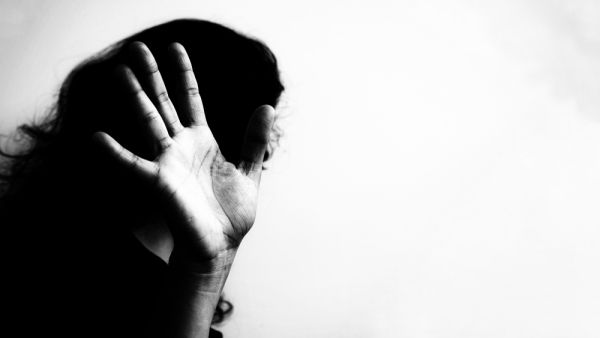Figures released last week by the Internal Security Forces showed a 51-percent increase in domestic violence calls to its hotline since the start of COVID-19. The impact of the health pandemic on society has shone a spotlight on domestic and gender-based violence in Lebanon.
The ISF revealed the figures to coincide with the UN’s international #16days campaign to end gender-based violence. The report revealed a rise in cases of family violence, including the concerning figure of 14 percent of abused women to be under the age of 18.
The social media campaign began on Nov. 25, the International Day for the Elimination of Violence against Women and will end on Dec. 10, on International Human Rights Day. It has been trending around the world to call for the prevention and elimination of violence against women and girls.
For abused women in Lebanon, the coronavirus-induced lockdowns, implemented by the government intermittently for the last nine months to keep citizens safe from the virus, have in turn put women in danger in their own homes.
Trapped at home, victims have reached out by phone to NGOs, which have also seen a rise in calls for help from domestic violence victims. One social worker who supports survivors explained to The Daily Star that with couples both at home all day, the frequency of abuse has become higher. It is no longer “happening once per month” but “every week” in some instances.
Kafa, a Lebanese NGO working to eliminate gender-based violence, has seen a stark increase in the number of phone calls to its 24/7 support center since the government imposed a country-wide lockdown in March. The number jumped from 299 at the start of the pandemic to 938 calls received in May, just two months on. Since then, the figures have topped 1,000 calls a month.
“When people are stuck in their houses, with no alternatives, any man that has the potential to use violence to subjugate his wife will do it. And this will be exacerbated when economic and living conditions get worse,” Zoya Rouhana, director of Kafa told The Daily Star.
The health pandemic comes as Lebanon deals with the worst economic crisis since the Civil War. It has witnessed the Lebanese pound lose more than 80 percent of its value, causing foodstuffs and medicines to triple in price. The financial woes have also resulted in high unemployment, leaving more people out of work and at home, while the lockdowns have also hit those working in the informal sector.
In Lebanon, a patriarchal system and entrenched sectarian beliefs mean many women retain traditional domestic roles in society, while men are the breadwinners for the family. Such disparity puts Lebanon at 145th out of 153 countries in the World Economic Forum’s global gender gap index.
Women’s rights are decided by the personal status law. In the absence of a unified civil status law in the country, issues such as marriage, divorce and child custody are decided by personal status laws, run by 15 separate sectarian courts, and rule overwhelmingly toward men. This leaves women with limited rights to end abusive marriages, gain financial support or protect their children.
Domestic violence victims are protected by Law 293, created in 2014 after years of campaigning by activists. But experts believe the bill does not go far enough to protect women. NGOs have been working alongside the Social Affairs Ministry and ISF to promote the issue of GBV and improve policy.
Abaad, a Lebanese NGO focused on achieving gender equality, has been training ISF officers since 2014 on GBV. Raghida Ghamlouch, program manager at Abaad, told The Daily Star that “for a long time there was a lack of knowledge and sensitivity on the subject of GVB, and how to deal with victims.”
Abaad has also also worked with the ISF’s phone call handlers who answer calls of domestic abuse. The ISF’s dedicated hotline, 1745, established in 2018, has been a crucial step forward in the safety of women in Lebanon.
As the government’s general mobilization measures have thwarted people’s ability to move freely, the hotline has been a vital resource for tackling cases of violence. From February to November this year, the ISF received 1,120 calls of domestic violence complaints -- a rise of 102 percent compared to the same period last year, according to the force.
Over at the hotline run by Kafa, the months of July, September, and October 2020 each recorded over 1,000 calls reporting GBV.
Publicity campaigns among the ISF, Kafa, and Abaad have had a positive impact on both removing the stigma surrounding domestic abuse and publicizing the number to call for help, both of which have contributed to the increase in reported cases, the NGOs revealed.
Rouhana explained that when she began campaigning for women’s rights in the 1990s “the issue of violence against women was totally fraught in Lebanese society.” She worked on educating people and speaking publicly about the problem to encourage women to speak out. “Changing culture will take time but it will happen.”
The importance of family values in Lebanese society makes victims feel ashamed at the notion of revealing tensions or abusive relationships. A social worker at Kafa explained to The Daily Star that “a lot of women believe that if they don’t talk, don’t tell people, they think that is how they are saving their homes, being a good mother.”
While the conversation around women’s rights and GBV has improved in Lebanon, the impact of COVID-19 has stalled progress.
A social worker at Kafa revealed that court closures over the last year due to the coronavirus measures have obstructed their work with survivors. One recent case, involving a woman in her 40s who sought the NGO’s help after her husband who was cheating on her also physically attacked her. She is seeking a divorce after 14 months of marriage.
The group has been working with a lawyer to take the case to the courts, while also offering psychological support to the victim. The couple was married in the Evangelical church, which has more straightforward rules on divorce than other sectarian courts. But the social worker explained that coronavirus has meant “the court is not opening like before; it is harder to do the procedures as we always do.”
Kafa has a new program to handle the perpetrators, offering education and rehabilitation sessions. It takes the abused person to first allow the offender to have sessions if the potential is there for the person to change. In some instances, men have come on their own accord, asking for help to improve. “We try as much as we can to change their behaviors and they can do it if they want to,” the social worker said.
Women in Lebanon have been facing an uphill struggle to achieve gender parity and consequently been paying the heavy price during the COVID-19 pandemic, which has only served to magnify gender inequalities in the country. Both Kafa and Abaad who have been striving for such a goal spoke of the need for a collective change in the country -- in attitudes, education, cultures and the law.
But Rouhana at Kafa admitted: “It is a very long struggle, yaani. Maybe it is easier to change laws than to change society and culture.”
This article has been adapted from its original source.








